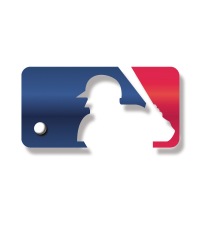 With the 2011 MLB.TV subscription prices likely to be announced over the next couple of weeks, the recent news story about Premiership TV rights has raised the topic of ‘blackouts’ in sports.
With the 2011 MLB.TV subscription prices likely to be announced over the next couple of weeks, the recent news story about Premiership TV rights has raised the topic of ‘blackouts’ in sports.
The European Commission Advocate Generals are to recommend that the Premier League’s practice of selling TV rights on a territorial basis in Europe is “contrary to European Union lawâ€. Currently the Premier League’s rights model allows them to tightly control the live broadcasting of games in the UK, limiting the number of games available and at what time the live games are played.
This effectively means that a lot of games are ‘blacked out’ and cannot be seen unless you are a) at the game in person, or b) picking up an illegal feed from another European country where many more games are broadcast. It’s that second practice that has led to the current court case and, if the Advocate General opinion is accepted, may no longer be deemed illegal after all.
The story has provoked interest from the David versus Goliath perspective of the pub landlord taking on the Premier League, as well as starting a debate on how the Premier League may change the way in which they sell their TV rights in Europe. However, it’s the blackout aspect of the current system that is worth considering in relation to Major League Baseball.
Blackouts are often discussed in the States because they can have a significant impact on the ability of sports fans to watch their team. This is particularly the case with the online MLB.TV subscription.Â
It is sold to North Americans as a way to watch “out-of-market†games. MLB.com shows all 2,430 regular season games, but depending on where you live you could have access to significantly less than this. For example, one article about the MLB blackout rules notes that fans in the state of Iowa cannot watch the Brewers, Cardinals, Cubs, Royals, Twins or White Sox.Â
In theory, games in a person’s market are blacked out because they are broadcast by local networks, but that’s not necessarily the case and a fan can be blacked out even though they have no other option to watch the game and live miles away from the ballpark in question. Games are also blacked out on Saturday afternoon and Sunday night as there are national broadcasts during this period on FOX and ESPN respectively.
There are also many barriers to following Premier League games live in the UK. You have to pay for a subscription to Sky Sports or ESPN if you want to see any Premier League football in the first place. No league games are showed live on TV at the traditional 3 p.m. kick-off time on Saturday and the games that are broadcast on TV are often moved to different days and inconvenient times that annoy the fans who actually want to go to the games.Â
And yet Brits don’t tend to talk about blackouts much.Â
There isn’t an expectation that all games will be available to watch on TV. The top teams who have fans throughout the country are on Sky Sports and ESPN frequently, so a decent proportion of their games are covered. The harsh reality is that the other teams in the Premier League, such as Fulham, Wigan and Sunderland, don’t attract much interest outside their local fan bases (albeit with every team having some fans dotted about the country). Teams in the Football League attract even less.
Generally fans of these teams can get to see them on a regular basis in person, with a reasonable number of home games played and geography playing a part in that even away games are accessible if you can afford the day out. A Minnesota Twins fan will struggle to get to all 81 home games at Target Field in a season, and isn’t going to leave work early, travel to Seattle for the night game and then be back in Minnesota for work the next morning.
TV coverage is therefore of greater significant to baseball fans than it is to football fans. That makes the blackout situation more apparent with the former.
Sunderland’s chairman Niall Quinn lambasted fans who watch “illegal†feeds rather than attend games in person; however I doubt many fans would choose to watch a game on TV or the internet if they could afford to be at the stadium. It’s different in baseball, where teams play 162 games in a season. It doesn’t matter how keen a fan you are, you’re not going to go to every game (or even come close) and with that being the case it would seem to make sense to allow fans to still watch the games on TV.
The question then is where is the tipping point at which showing too many games leads to a reduction in bums on seats at the ballpark? Part of the apparent unfairness to the MLB blackout system is that this doesn’t seem to be a question that is properly considered at all, the blackout rules amount to an arbitrary decision that was made many years ago and remains in place today.
The argument put forward by the Premier League for not allowing games to be broadcast at 3 p.m. on a Saturday is that it will encourage fans to go and watch other local teams, not that it will stop people from attending the broadcasted games. In other words, someone would choose to stay in and watch Man Utd on the telly rather than head off to Oldham, Bury, Rochdale or Stockport on a Saturday afternoon. The validity of that argument is up for debate, in fact the European Commission Advocate Generals’ doubts about this argument form part of their reasoning against the current practice.Â
It’s unlikely that similar thoughts could be part of an argument towards the MLB blackout. Would a baseball fan stop going to some games at a local Minor League ballpark just so they can sit indoors and watch all 162 games on the TV? I’d like to think not.
If the European Commission does ultimately rule against the Premier League, and any subsequent appeal that the Premier League will undoubtedly make against the ruling, a new system of rights-selling in Europe would be the result. Fans in European countries outside the UK have been able to watch many more live games than us Brits and that might change by reducing the games they can broadcast and therefore closing the loophole that would allow British pubs to pick up the European feeds (as there wouldn’t be much advantage in doing so).
That wouldn’t be very fair on the European fans unable to get to the games in England. Considering how lucrative the rights are, some compromise is likely to be reached (maybe showing some games ‘as live’ an hour or so later) so that the Premier League can still make plenty of money out of Europe whilst limiting the number of live games available in the UK.
We in the UK are able to watch all 2,430 MLB games via MLB.TV with the blackout restrictions not applying to us for obvious reasons: very limited TV coverage, substantial barriers to attending any games in person and the fact that MLB rights in the UK are worth little to MLB anyway. The MLB blackout situation for us is therefore unlikely to change, but some more fairness should be introduced to the system in the States.
The argument from baseball fans and football fans is that they want to watch more games. If they are prepared to pay a reasonable price for it, turning that revenue down seems a strange way to operate.


2 comments
Living here in the States, let me tell you something about black outs: they’re usually tied to attendance because for some reason back in the late forties and early fifties sports teams actuall feared television and worried that it would somehow have a negative on attendence. It is because of this that leagues developed rules that stated that for “nationally televised games” there had to be a sellout, where all seats were sold: Otherwise, the game could not be shown in the local market. This is especially the case in the NFL, where if tickets are not sold out by Friday afternoon there is no game shown on Sunday and fans are left to follow the game on the radio.
In Baseball, it’s a little differant because the Network have exclusive rights for nationally televised games and local networks like YES and NESN cant show games involving the Yankees and Redsox that are shown on either ESPN or FOX on Saturday afternoons and Sunday nights. However, there are so-called local blackout of the MLB Network for games and weekday games on ESPN because those games are also being shown on local networks.
Illegal streams are ten a penny, so if you want to watch something at home, you generally can.
It wont prevent you from going to a game, as you were probably not going to reach it anyway. Just like baseball, there are plenty of football fans who live outside their clubs catchment area.
Once you price in bus ticket, undergound ticket, match ticket, lunch out, dinner out, price of programme etc. I would have to fork out £130+ every week to watch my team (Tottenham) in the flesh, not exactly value for money is it?
In the case of myself, if Tottenham weren’t available to watch as an illegal stream at 3pm every Saturday, then I wouldn’t put my coat on to go out and watch Leicester City…god no!
Simply a case of the TV station cutting its nose off to spite its face.
Its their loss I guess!